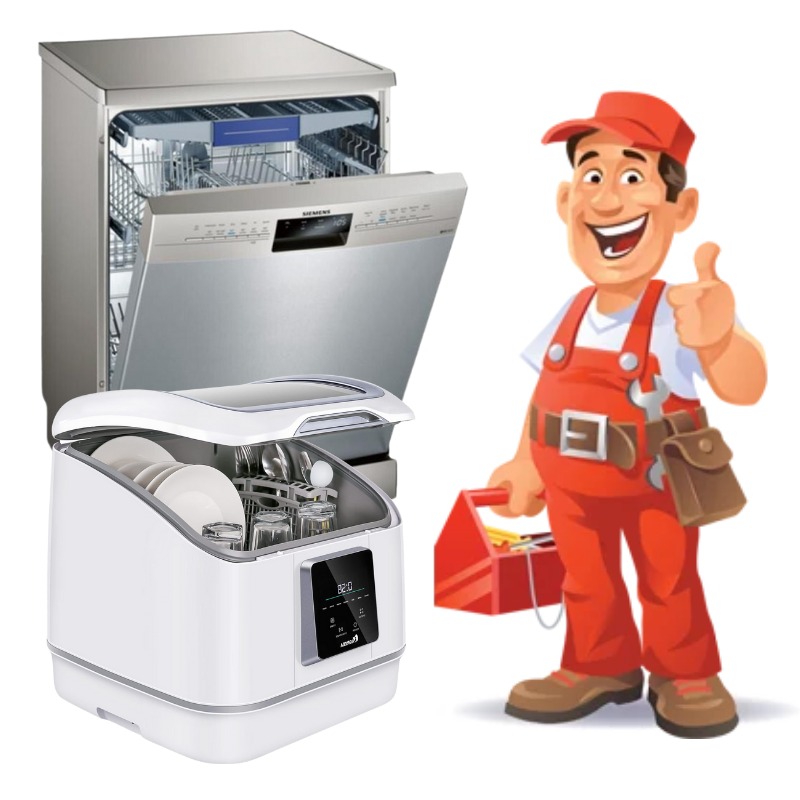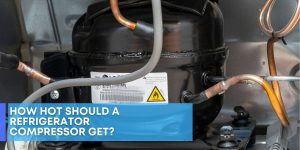If your dishwasher is not draining properly, there are some things you can do to troubleshoot the problem. First, check the water supply. Make sure you have enough water going into the dishwasher and that it’s not clogged. Next, check the dishwasher drain hose. Make sure it’s connected properly and that there isn’t any debris blocking the hose. If all of these solutions fail to fix the problem, then you may need to call a professional to take a look at your dishwasher.
Common Parts Of A Dishwasher And Their Functions
In a dishwasher, water is sprayed onto dishes and either sinks or racks in the bottom tray to clean them. The heat caused by the water and detergent breaks down food particles on the surface of the dishes.
The dishwasher’s water circulation system circulates hot water throughout the dishwasher to make sure all dishes are thoroughly cleaned. Water from drains and garbage disposals is also recycled and used to wash dishes.
Fridges trap cold air and distribute it evenly in a room. This reduces drafts that can cause problems such as condensation on windowsills or pipes, dust mites, and other allergens in your home.
Your dishwasher is leaking water or worse, it’s time for a repair. A damaged vent can cause water to leak from the dishwasher into the floor and onto the kitchen floor below. The best way to fix a leaking dishwasher vent is with a replacement vent. If the damage is minor, you may be able to fix it yourself using basic tools and supplies. If the damage is more serious, you’ll likely need to call in a professional technician to do the repairs.
Fixing A Clogged Dishwasher Drain
In case your dishwasher is slowly draining or not cleaning dishes as well as it used to, there are a few things you can do to fix the problem. Check for obstructions in the drain pipe and remove any that are large enough to cause problems. If the obstruction is near the dishwasher’s discharge pipe, you may need to replace the dishwasher’s discharge hose. Clean out any debris that has built up inside the dishwasher’s motor and pump. Finally, use a household cleaner like vinegar or baking soda to clear any build-up on the dishwasher’s filters.
A dishwasher is an important appliance in any kitchen. It helps to clean dishes quickly and easily. A dishwasher also saves you time and energy by doing the cleaning for you.
A dishwasher can be an expensive appliance, but it’s worth it if you use it every day. If your dishwasher isn’t working properly, it can be difficult to clean your dishes. In some cases, a dishwasher doesn’t seem to be cleaning the dishes very well. In these cases, you might need to have it repaired.
How Do Dishwashers Work?
The dishwasher works by spraying jets of water at a set rate over the dishes inside. The water speeds up as it breaks down the food, which creates suds and hot water that clean the dishes.
A dishwasher is a machine that cleans dishes by running water over them. There are 3 main parts to a dishwasher: the spray arm, the dishwasher door, and the heating element. The spray arm sprays water onto the dishes while they are being washed. The dishwasher door opens and shuts to allow the water to reach the dishes. The heating element heats up the water so it can clean the dishes better.
The Different Types of dishwashers
There are many different types of dishwashers on the market today.
Here is a quick overview of the most popular types:
Top Load Dishwashers: Top load dishwashers use a water spray to clean dishes. They are easier to clean than front-load dishwashers, but they can be more expensive.
Front Load Dishwashers: Front-load dishwashers use a water and detergent mixture to clean dishes. They are less expensive than top-load dishwashers, but they can be harder to clean because they have fewer openings for water and detergent to reach the dishes.
How To Fix A Dishwasher?
If your dishwasher is not cleaning dishes as well as it used to, there might be a problem with the dishwasher itself.
Here are some tips on how to fix a dishwasher:
Check the water supply and drainage system – Make sure that the water supply lines are not clogged and that there is enough room for the water to flow properly into and out of the dishwasher. Also, make sure that all drains in the house are clear of debris.
Clear any built-up deposits from the dishwasher’s interior – Use a stiff brush or vacuum cleaner to clean around all of the dishwasher’s interior surfaces, including its filters and spray arms.
Check for leaks – If you notice any unusual water smells coming from your dishwasher, check for possible leaks around its valves or hoses. If you find any leaks, replace them as soon as possible.
Replace worn parts – If your dishwasher is older than six years old, it probably has worn-out parts that need to be replaced. Contact a professional repairman to have these parts replaced.
Troubleshooting Dishwashers
If you are having problems with your dishwasher, there are a few things that you can do to try and resolve the issue. Check the water levels and make sure that they are correct. Run the dishwasher without any dishes in it for a few cycles to clear out any built-up soils or Detergent residue. If all of these steps fail to fix the problem, you may need to call in a professional technician.
If your dishwasher is not draining properly or is making strange noises, it might be time to call a professional. A dishwasher can become clogged from an accumulation of food and grease, or it could have developed a leak. In either case, the best course of action would be to call a professional who can inspect the appliance and recommend the necessary dishwasher repairs.





















